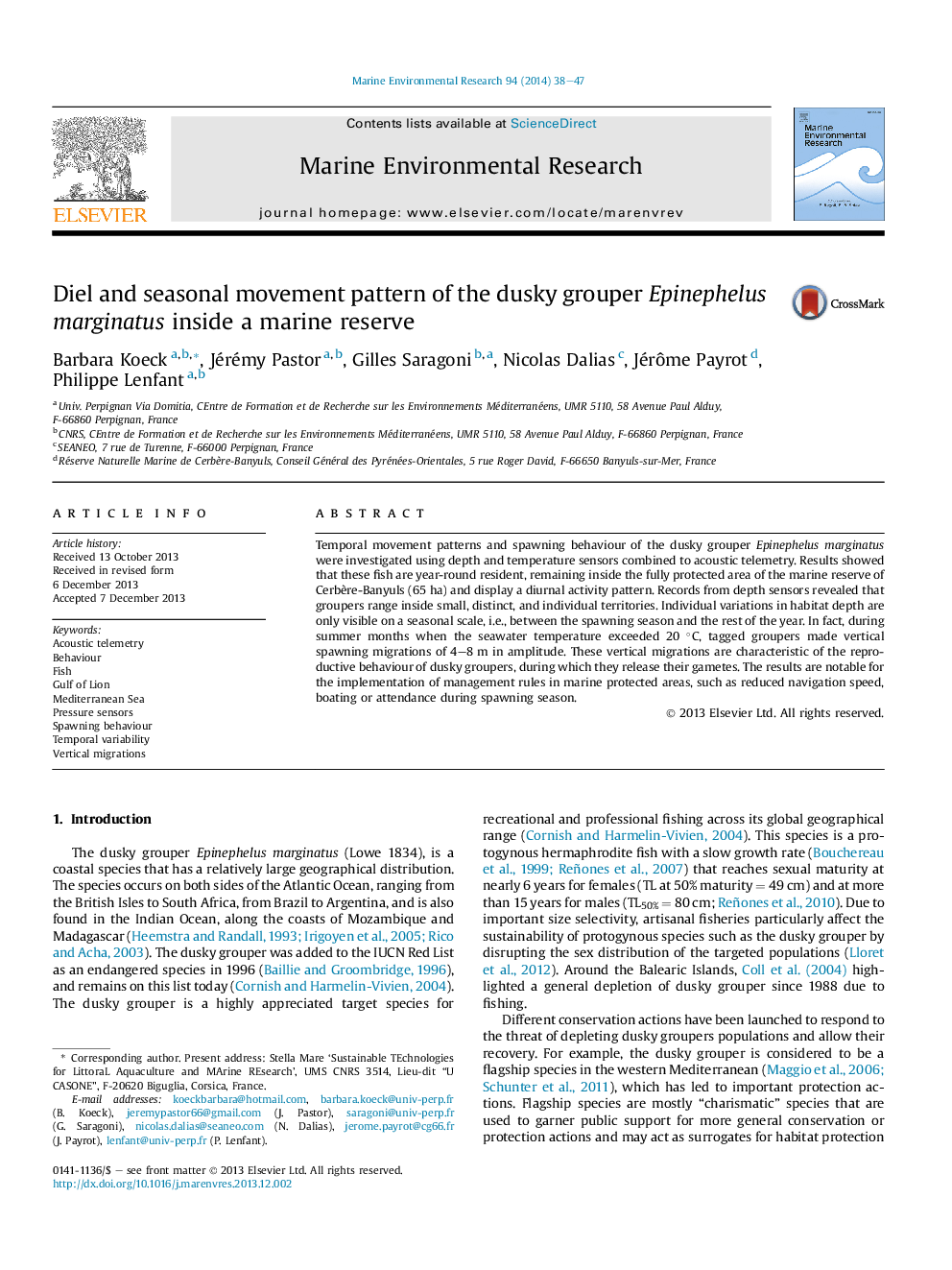| کد مقاله | کد نشریه | سال انتشار | مقاله انگلیسی | نسخه تمام متن |
|---|---|---|---|---|
| 4550801 | 1627588 | 2014 | 10 صفحه PDF | دانلود رایگان |

• Study of dusky groupers' movement patterns using acoustic telemetry and depth sensors.
• Site fidelity of fish to small distinct territories inside the marine reserve year-round.
• Significant pattern of diurnal activity year-round.
• Vertical spawning migrations of 4–6 m when summer temperatures exceed 20 °C.
• Spawning appears to be synchronized with brief wind-induced temperature decreases.
Temporal movement patterns and spawning behaviour of the dusky grouper Epinephelus marginatus were investigated using depth and temperature sensors combined to acoustic telemetry. Results showed that these fish are year-round resident, remaining inside the fully protected area of the marine reserve of Cerbère-Banyuls (65 ha) and display a diurnal activity pattern. Records from depth sensors revealed that groupers range inside small, distinct, and individual territories. Individual variations in habitat depth are only visible on a seasonal scale, i.e., between the spawning season and the rest of the year. In fact, during summer months when the seawater temperature exceeded 20 °C, tagged groupers made vertical spawning migrations of 4–8 m in amplitude. These vertical migrations are characteristic of the reproductive behaviour of dusky groupers, during which they release their gametes. The results are notable for the implementation of management rules in marine protected areas, such as reduced navigation speed, boating or attendance during spawning season.
Journal: Marine Environmental Research - Volume 94, March 2014, Pages 38–47